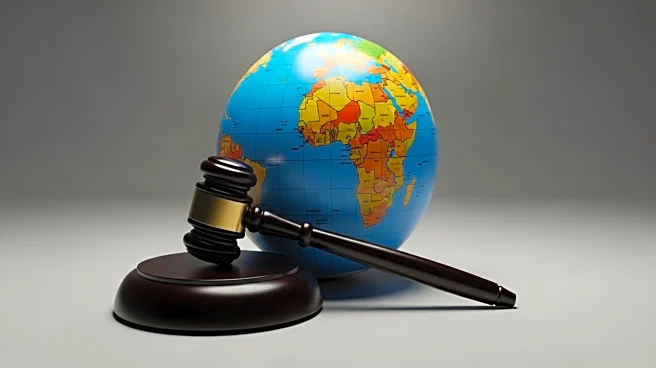What's Happening?
Tony Blair, former Prime Minister of the United Kingdom, has collaborated with President Trump to develop a 20-point plan aimed at transforming Gaza into a 'special economic zone.' This plan envisions a Gaza free from armed conflict, bustling with development projects, and governed by an international 'board of peace' chaired by President Trump. The proposal includes creating public-private partnerships to attract foreign investment and suggests a governance structure involving Blair and other international figures. The plan has been criticized for its lack of clarity on how it will be implemented, particularly in persuading Hamas to disarm and in addressing the needs of the local population.
Why It's Important?
The proposal reflects a significant shift in how international interventions in conflict zones are conceptualized, emphasizing economic development over political solutions. If implemented, it could reshape the economic landscape of Gaza, potentially benefiting international investors and businesses. However, the plan has raised concerns about its feasibility and ethical implications, particularly regarding the displacement of Palestinians and the prioritization of foreign interests over local needs. The involvement of high-profile figures like Blair and Trump highlights the ongoing influence of Western powers in Middle Eastern geopolitics.
What's Next?
The plan's success depends on gaining support from key stakeholders, including regional governments and international organizations. The reaction from Palestinian authorities and the broader international community will be crucial in determining its viability. If the plan moves forward, it could set a precedent for similar economic-focused interventions in other conflict zones.
Beyond the Headlines
The proposal underscores the complex interplay between economic interests and geopolitical strategies. It raises questions about the ethical responsibilities of international actors in conflict zones and the potential for economic initiatives to drive political change. The plan also highlights the enduring legacy of colonialism in shaping modern interventions, with economic development often framed as a solution to political and social issues.









